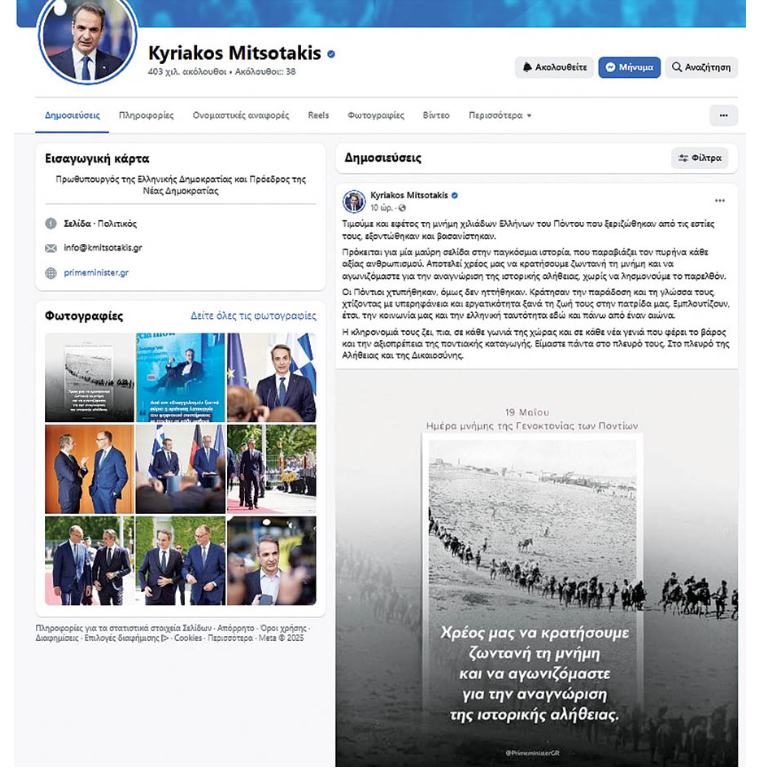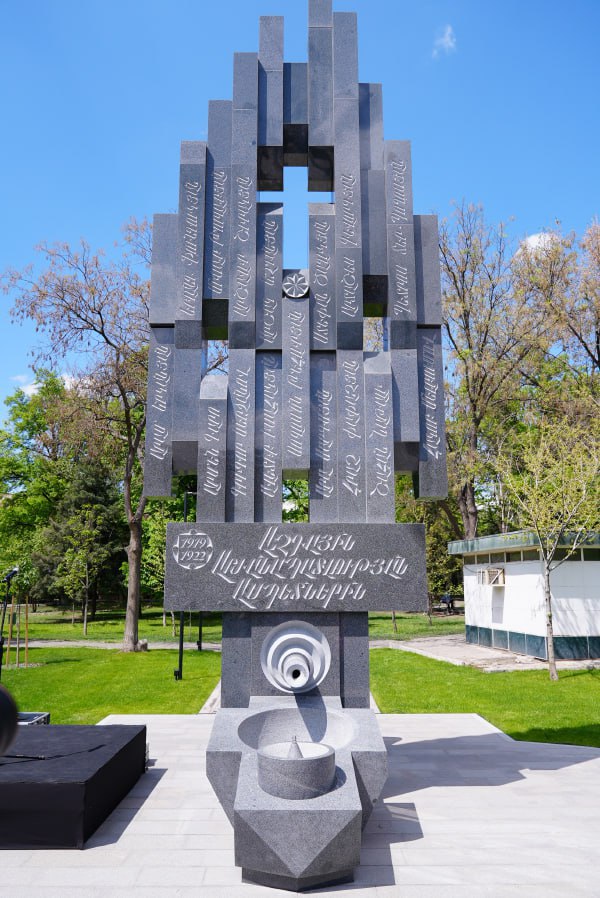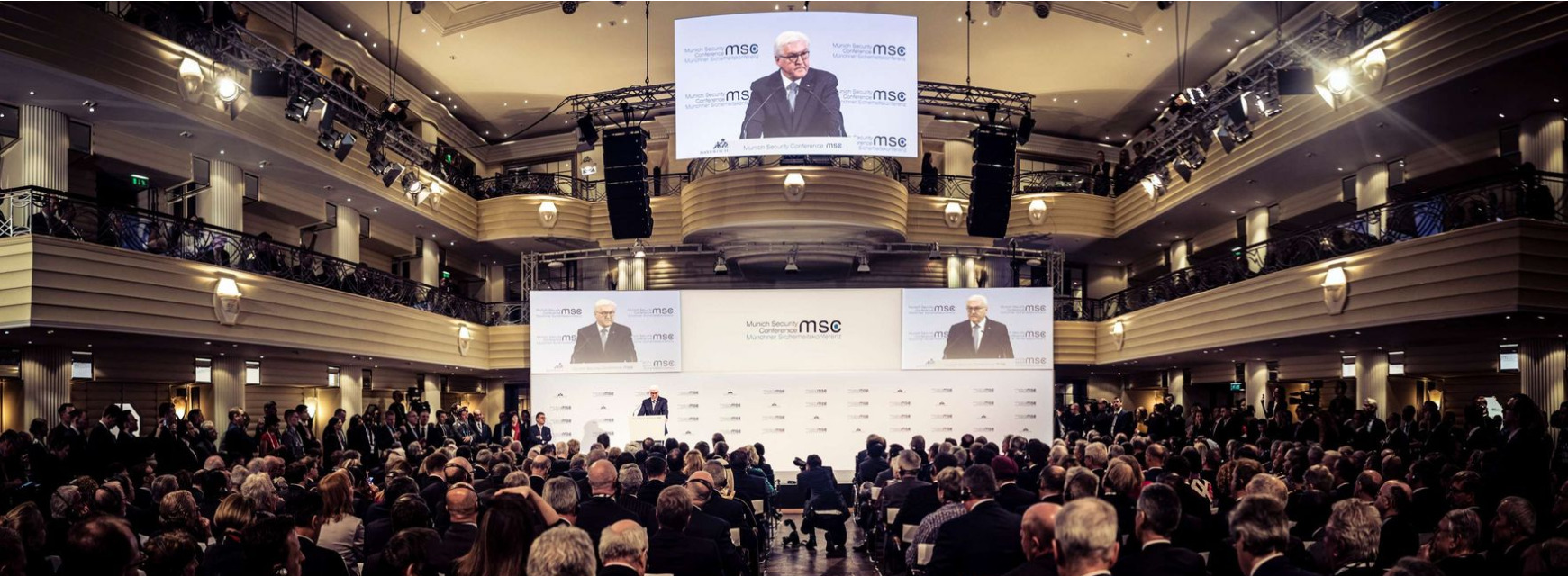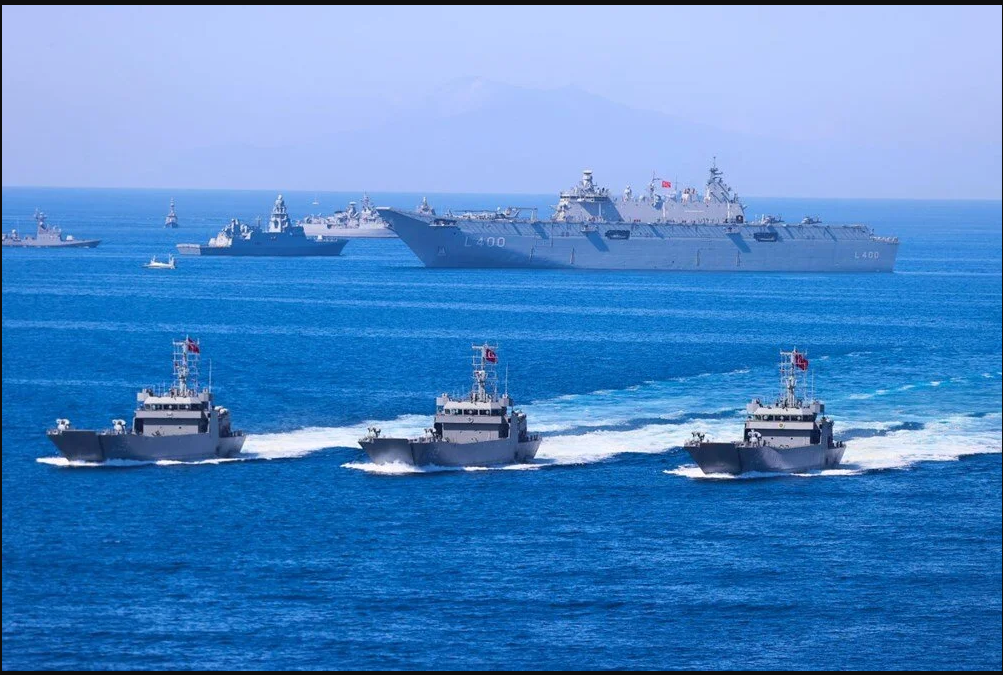D.L. PHILLIPS’S DIPLOMATIC HISTORY OF THE TURKEY-ARMENIA PROTOCOLS (FULL TEXT)
Analysis No : 2012 / 6
Author : Ömer Engin LÜTEM
02.04.2012
17 min read
On March 2’nd 2012, the US Columbia University’s Institute for the Study of Human Rights has published on the internet an extensive research entitled “Diplomatic History: The Turkey-Armenia Protocols” (129 pages) written by David L. Phillips, the Director of the Program on Peace-building and Rights in this Institute.
Phillips has been frequently mentioned in the past years on issues concerning Turkey-Armenia relations and the Armenian Question. Through the initiative of the US Department of State, he has established the Turkish-Armenian Reconciliation Commission in 2001 comprised of some Turkish and Armenian individuals and has served as its coordinator (moderator) until the Commission ended in 2004. Although the members of this Commission were important personalities, they had no official position; in other words, they did not represent the governments of Turkey or Armenia. This Commission was an implementation of the US method known as “Track two” diplomacy in which non-official individuals or non-governmental organizations come together in order to contribute to or make resolving some international issues easier. It has been observed that “Track Two” dialogues have been beneficial for the development of cultural, scientific, sportive and even economic relations. However, in cases where serious divergences in political issues exist, it is very difficult for these kinds of dialogues to produce tangible results; in other words, to achieve what the governments have failed in doing so. As a matter of fact, the Turkish-Armenian Reconciliation Commission has also experienced this course.
The event which brought the end of the Commission is that upon Phillip’s proposal, the ICTJ (International Center for Transitional Justice) was asked whether or not the 1948 UN Genocide Convention could be applied to the 1915 events. In the ICTJ’s response, it was indicated that the 1948 Convention cannot be applied retroactively and therefore compensation and territory could not be claimed from Turkey. But ICTJ also addressed an issue which was not asked from them and expressed that if the UN Convention was applied retroactively, then the 1915 events would be considered as genocide. Since this response also implied that Turkey would not pay compensation or give territory if it recognizes the Armenian genocide allegations, it had drawn the objections of its Turkish members. On the other hand, the Dashnak Party, which had no members in the Commission, was not at all pleased with this response which did not take into consideration their territorial claims and passed an order to a jurist named Alfred de Zayas to write a report indicating that the 1948 Convention may be applied retroactively. Righteously, Phillips was held responsible for this event which caused displeasure on both sides and the Commission disbanded when it was no longer able to continue with other members.
The talks in the Commission were confidential. In 2005, by writing a book entitled “Unsilencing the Past”, Phillips disclosed these talks and tried to settle accounts with some of its members.
Meanwhile, President Bush had expressed in his 24 April statements in 2005 and 2006 that the analysis of ICTJ, while not the final word, has marked a significant step towards reconciliation. Therefore, it has been understood that the formula of “not paying compensation or giving territory if genocide is recognized” put forth by Philips is also supported by the US Government and they are probably inspired by it.
On the other hand, the governments of Turkey and Armenia have preferred to avoid “Track Two” activities which are out of their control.
It could be seen that Phillips, who is generally mistrusted in Turkey due to these activities, is regarded in the US as some kind of a specialist within the field of Turkey-Armenia relations. Phillips writing the research mentioned above must be the result of this conviction.
In his research, Phillips explains the preparation and signing of the Turkey-Armenia Protocols. In order to do this, he conducted interviews with some Turkish, Armenian and American individuals and utilized some articles published on this subject. In the end, a text consisting of 128 pages has emerged. However, since Phillips explains the events chronologically rather than analytically, the research has become some kind of a pile of details. Therefore, those having essential knowledge of the Protocols have not been able to learn anything from Phillips’s research, while those not having any knowledge have disappeared in this sea of details. On the other hand, errors of facts, especially on some numbers, exist in his statements. Moreover, although the chapters such as “Freedom of Expression”, “Hrant Dink” and “Ergenekon” in this text carry some significance, generally these subjects have not had any influence on Turkey-Armenia relations and the Protocols in particular.
We believe that there are two points in Phillips’s research which draws attention. The first is the US’s attempts to implement the “Track Two” formula for the normalization of Turkey-Armenia relations. The second is some proposals on what could be done next for the normalization of Turkey-Armenia relations.
Phillips indicates that opposite to the lack of contact between Turkey and Armenia on official level, the cooperation of non-governmental organizations of both countries continues and that most of the necessary financial aid for this is supplied by the US Government. According to him, 2.4 million dollars has been allocated in the US Aid Mission in Yerevan while the US Embassy in Ankara has 2.3 million for this purpose. In a research published by TEPAV in January[1], it has been indicated that 47.3% of the Track Two activities have been financed by the US, but that this number is greater when considering that the US also contributes to the funds supplied by other sources. Some institutions of Germany, Sweden and Switzerland could be considered among the other countries. Which institution or individuals will attend the meetings from Turkey and Armenia will be determined by those providing financial aid. Since a significant amount of money exists, it could be understood that the number of those wanting to participate in these activities is quite high. However, Phillips mainly criticizes the activities organized by the US and addresses the lack of coordination between the embassies in Yerevan and Ankara, the lack of coordination among Armenian groups and also among Turkish groups, and the lack of coordination between Turkish and Armenian groups. Also based on the research of TEPAV mentioned above, the conclusion could be reached that the Armenian Groups are more financially supported.
In short, it could be understood that quite intensive contacts have taken place between Turkish and Armenian non-governmental organizations and professional associations especially through the initiatives of the US. It would have been expected for these contacts to have achieved some cooperation between the two countries in specific fields or at least to have promoted it. However, no such result has been observed. After the failure of official contacts between Turkey and Armenia, it is believed that the “Track Two” activities will have the same outcome.
At the end of L.D. Phillips’s research entitled “Diplomatic History: The Turkey-Armenia Protocols”, under the heading “The Way Forward”, some proposals on what could be done for the normalization of Turkey-Armenia relations have been put forward. As could be seen, these proposals are numerous and concerns many issues. Below we are summarizing and gathering them under certain headings.
Proposals on Intensifying Civil Society Activities
At the top of Phillips’s proposals comes the “Track Two” activities (which is his area of specialization); in other words, the activities between the civil society organizations and professional associations of Turkey and Armenia. Phillips finds Track Two activities necessary when there is absence of progress at the intergovernmental level. He complains that there are not enough funds and that the EU should participate in these activities and establish a “Turkey-Armenia Opportunity Fund”. Moreover, he calls on the Swedish International Development Agency, which we believe has funded some activities, to organize a “Track Two Implementation Review Conference”.
Phillips’s concrete proposals on civil society activities could be summarized as follows.
1. Civil society organizations should prepare a “Friendship Treaty” enumerating principles of good neighborly relations and collectively identifying areas of common endeavor.
2. Another proposal for think tanks of both countries is to conduct a public opinion survey on social attitudes of Turks towards Armenians and of Armenians towards Turks and the results of it to be used to inform future Track Two activities, shape public policy and encourage intergovernmental contact.
Proposals for Economic Cooperation
1. Restoration of the Ani Bridge across the Akhurian River (Arpaçay) between Turkey and Armenia as a symbol of Armenia’s cultural presence in Modern Turkey or at least opening it for tourism,
2. Rebuilding of the “Statute of Humanity”, which was dismantled in Kars on grounds that it was unwanted by the population, as “a symbol of Turkish-Armenian reconciliation” with input from Turkish and Armenian artists,
3. Establishing “Centers of Excellence” in fields such as cancer research in Armenia as a magnet for Turks and other international experts and Armenia relaxing visa processing for Turks who are visiting for academic meetings,
4. Increasing new charter flights between Van and Yerevan in order to expand people-to-people and commercial contacts and Turkish Airlines opening an office in Yerevan for this purpose,
5. Ankara opening the border for Armenian tourist buses and allowing pilgrim groups and cultural tours to travel,
6. Within the framework of the Black Sea Economic Cooperation, 200 Armenian trucks have been allowed to travel through Turkey. Thus, Armenian trucks should also be allowed to off-load in Turkey,
7. Turkey importing electricity from Armenia in order for the economic development of its provinces bordering Armenia,
8. Establishing a “Qualifying Industrial Zone” in the Armenian region of Kazakh bordering Turkey which consists of an industrial park and a free-trade zone. Qualifying goods would have Access to US markets without tariffs or quotas,
9. Turkey has a fiber optic cable that extends all the way to Kars. A feasibility study should be conducted on the opportunities of this cable being used in Armenia.
Proposals on Reviving Intergovernmental Contacts
1. Phillips puts forth that the conclusion reached in the report of the ICTJ, which we mentioned in our first article (Turkey will not pay compensation or give territory if it recognizes the genocide allegations), should be used as a road map in intergovernmental contacts and rapprochement between the two countries.
2. Another important proposal is for Turkey and Armenia to recognize and open the existing border. For this, diplomatic notes reaffirming commitments in the 1921 Treaties of Moscow and Kars should be exchanged. Therefore, the free transit of commodities will also be guaranteed. An exchange of diplomatic notes does not require parliamentary authorization.
3. Inspired from Armenia’s assistance during the Van Earthquake, Turkish-Armenian cooperation in the field of emergency preparedness must be achieved,
4. Turkish citizenship should be offered to the descendants of relocated Armenians.
5. Taking into consideration that Prime Minister Erdoğan apologized for those who died in Dersim and depending on timing and circumstances, he puts forth that apologizing for the suffering of Armenians may be in Turkey’s national interest.
6. Before considering a Joint Historical Commission proposed by Turkey, a research committee of Turkish, Armenian and international historians could be established to focus on methodology of archival research.
7. A joint committee of Turkish and Armenian restoration experts could identify monuments and cultural sites for rehabilitation.
8. An exhibition which displays the role of Armenians in the Ottoman Army should be opened.
9. The names of the “Righteous Turks” who sheltered and saved Armenians from relocation should be profiled in the Armenian Genocide Museum in Yerevan.
10. The Obama Administration should conduct a policy review exploring innovative approaches co-mingling Turkish and Armenian interests. Meanwhile, whether US recognition of the genocide allegations would create conditions for reconciliation should be discussed.
11. Article 301 of the Turkish Criminal Code should be abolished.
12. Another one of Phillips’s proposals concerns Azerbaijan. According to this, if Baku shows that it lacks the political will to make progress in the Karabakh issue, the Minsk Group co-chairs should suspend negotiations after announcing Azerbaijan’s obstructionism.
13. Prime Minister Erdoğan should issue an executive order in the name of humanity to open the Turkey-Armenia border and submit the Protocols for ratification by the Turkish Grand National Assembly. This magnanimity is in accordance with Islamic principles and helps to realize Atatürk’s ideal of “Peace at home, peace abroad”.
From Phillips’s proposals we addressed above on what could be done for the normalization of Turkey-Armenia relations, we have reached the following conclusions.
First of all, it could be seen that Phillips attaches too much importance on the activities of civil society organizations shortly referred to as “Track Two”. Although the idea of intensifying civil society activities when there is absence or minimization of contacts on an intergovernmental level is accurate in essence, it is difficult to receive positive outcomes from the activities and initiatives of civil society organizations during a period when serious disagreements exist between the two countries, especially concerning the genocide allegations, inviolability of borders and the Karabakh issue.
Within this framework, as Phillips has proposed, although preparing a “Friendship Treaty” as a result of “Track Two” activities is possible in principle, it should not be expected from the governments of both countries to adopt texts prepared by individuals and/or institutions lacking both competence and responsibility.
Therefore, there will be a greater chance for “Track Two” activities to be successful if they deal with more moderate concerns and emphasize issues such as science, culture, sports and economics in particular.
When observing Phillips’s proposals, it could be seen that almost all of them are to Armenia’s favor. It is obvious that a person who acts as a mediator must remain “neutral” as possible. However, just as he did with the works of the Turkish-Armenian Reconciliation Commission, this time he has brought forward proposals which please the Armenians. But, by doing this, he reduces the possibility of these proposals being taken into consideration by Turkey.
As known, the Turkey-Armenia Protocols have failed to be implemented due to the Karabakh issue and the border between the two countries continues to remain closed. Phillips proposes for the bridge across the the Akhurian River (Arpaçay) to be restored and at least opened for tourism, the border to be opened for Armenian tourist buses, pilgrim groups and cultural tours, new charter flights between Van and Yerevan to be increased in order to expand people-to-people and commercial contacts and Armenian trucks to be allowed to off-load in Turkey. If all these are realized, then to a great extent the border will be opened; in other words, the non-implementation of the Protocols will be “by-passed”.
There are some speculations, mostly based on Armenian/US sources, that the Eastern provinces of Turkey needs energy, that Armenia is capable of selling electricity and therefore, such a great trade-off will contribute to the development of relations between the two countries. Phillips repeats these speculations. However, when examining closely, it could be seen that Armenia does not possess reliable resources for producing electricity. The Metsamor Nuclear Power Plant, which is the main source of energy, has already lived out its lifespan and is closed frequently for restoration. Other sources of petroleum and natural gas in producing electricity are imported by Armenia. Due to some security issues, importation through Georgia is sometimes ceased. In this situation, experiencing problems is inevitable when receiving electricity from Armenia.
Some of Phillips’s proposals under the heading of reviving intergovernmental contacts would not lead to a revival of these contacts, but on the opposite would cause their failure from the very beginning if they are insisted upon. The ICTJ’s famous formula of Turkey not paying compensation and not giving territory to Armenia if it recognizes the genocide allegations completely contradicts Turkey’s policy which it has followed until now and which has no reason to not continue following from now on. When remembering the great reactions of governments and public opinion in Turkey towards the US genocide resolutions, there is no possibility that US recognition of the genocide allegations will lead to reconciliation over time between the two countries. The proposal that Prime Minister Erdoğan should apologize to the Armenians just as he did for the Dersim events is based on a very incorrect and common belief that only the Armenians have suffered during the First World War. The fact that 518.000 civilian Muslims were slaughtered by Armenian gangs during the war has been proven by the Ottoman official documents recently published. Therefore, it is evident that unless the Armenians and their advocates possess a “just memory”, it will not be possible for true reconciliation between Turkey-Armenia and the Turks and Armenians to be reached.
Phillips is not realistic at all on the Karabakh issue. He proposes that if Azerbaijan does not show the political will necessary in resolving this issue; in other words, does not make concessions to Armenia, the Minsk Group co-chairs should suspend negotiations. When considering the criticisms of Azerbaijan together with Turkey against the Minsk Group, we do not believe that they will complain if this Group ceases to function.
Phillips’s most constructive proposal is the one regarding the recognition and opening of the border between Turkey and Armenia. He states that this could be done through exchange of diplomatic notes and that this does not require parliamentary authorization. Technically this is possible. However, it seems that he has forgotten that the border remains closed because no progress has been achieved in the Karabakh issue.
Last of all, Phillips calls on Prime Minister Erdoğan to issue an executive order in the name of humanity to open the Turkey-Armenia border and submit the Protocols for ratification by the Turkish Grand National Assembly. However, it is difficult to understand what the benefit will be of the Turkish Prime Minister abandoning its policy which Turkey has followed for years and giving Armenia such a gift by ignoring its relations with Azerbaijan.
We believe that Phillip’s proposals essentially reflect Armenian views and therefore, there is no possibility for it being accepted and implemented as a whole. Perhaps it might be possible to dwell on some of them which do no have a political aspect (such as extending the Turkish optic cable to Armenia) if Armenia is still interested after it is rid of the election atmosphere it currently is in.
[1] Reflecting on the TWO Decades of Bridging the Divide: Taking Stock of Turkish-Armenian Civil Society Activities
© 2009-2025 Center for Eurasian Studies (AVİM) All Rights Reserved
No comments yet.
-
D.L. PHILLIPS’S DIPLOMATIC HISTORY OF THE TURKEY-ARMENIA PROTOCOLS 4
Ömer Engin LÜTEM 30.03.2012 -
D.L. PHILLIPS’S DIPLOMATIC HISTORY OF THE TURKEY-ARMENIA PROTOCOLS 2
Ömer Engin LÜTEM 28.03.2013 -
D.L. PHILLIPS’S DIPLOMATIC HISTORY OF THE TURKEY-ARMENIA PROTOCOLS (FULL TEXT)
Ömer Engin LÜTEM 02.04.2012 -
D.L. PHILLIPS’S DIPLOMATIC HISTORY OF THE TURKEY-ARMENIA PROTOCOLS 3
Ömer Engin LÜTEM 29.03.2012 -
D.L. PHILLIPS’S DIPLOMATIC HISTORY OF THE TURKEY-ARMENIA PROTOCOLS
Ömer Engin LÜTEM 27.03.2012
-
 AFTER BREXIT: THE FOOTSTEPS OF A TRULY CAROLINGIAN EUROPEAN UNION
AFTER BREXIT: THE FOOTSTEPS OF A TRULY CAROLINGIAN EUROPEAN UNION
Teoman Ertuğrul TULUN 15.03.2019 -
 GREECE ATTEMPTS TO FORGE ANOTHER FRONT AGAINST TÜRKİYE WITH A PONTIC NARATIVE
GREECE ATTEMPTS TO FORGE ANOTHER FRONT AGAINST TÜRKİYE WITH A PONTIC NARATIVE
Teoman Ertuğrul TULUN 01.07.2025 -
 THE ROOTS OF “NEMESIS” AND THE BACKGROUND OF RADICAL ARMENIAN NATIONALIST TERRORISM
THE ROOTS OF “NEMESIS” AND THE BACKGROUND OF RADICAL ARMENIAN NATIONALIST TERRORISM
AVİM 11.05.2023 -
 MUNICH SECURITY CONFERENCE 2020 REVEALS THE NECESSITY OF "CONSTRUCTIVE EURASIANISM"
MUNICH SECURITY CONFERENCE 2020 REVEALS THE NECESSITY OF "CONSTRUCTIVE EURASIANISM"
Teoman Ertuğrul TULUN 21.02.2020 -
 NAVAL STRENGTH IN THE AEGEAN: STRATEGIC LESSONS FROM THE BALKAN WARS
NAVAL STRENGTH IN THE AEGEAN: STRATEGIC LESSONS FROM THE BALKAN WARS
Teoman Ertuğrul TULUN 12.06.2024
-
25.01.2016
THE ARMENIAN QUESTION - BASIC KNOWLEDGE AND DOCUMENTATION -
12.06.2024
THE TRUTH WILL OUT -
27.03.2023
RADİKAL ERMENİ UNSURLARCA GERÇEKLEŞTİRİLEN MEZALİMLER VE VANDALİZM -
17.03.2023
PATRIOTISM PERVERTED -
23.02.2023
MEN ARE LIKE THAT -
03.02.2023
BAKÜ-TİFLİS-CEYHAN BORU HATTININ YAŞANAN TARİHİ -
16.12.2022
INTERNATIONAL SCHOLARS ON THE EVENTS OF 1915 -
07.12.2022
FAKE PHOTOS AND THE ARMENIAN PROPAGANDA -
07.12.2022
ERMENİ PROPAGANDASI VE SAHTE RESİMLER -
01.01.2022
A Letter From Japan - Strategically Mum: The Silence of the Armenians -
01.01.2022
Japonya'dan Bir Mektup - Stratejik Suskunluk: Ermenilerin Sessizliği -
03.06.2020
Anastas Mikoyan: Confessions of an Armenian Bolshevik -
08.04.2020
Sovyet Sonrası Ukrayna’da Devlet, Toplum ve Siyaset - Değişen Dinamikler, Dönüşen Kimlikler -
12.06.2018
Ermeni Sorunuyla İlgili İngiliz Belgeleri (1912-1923) - British Documents on Armenian Question (1912-1923) -
02.12.2016
Turkish-Russian Academics: A Historical Study on the Caucasus -
01.07.2016
Gürcistan'daki Müslüman Topluluklar: Azınlık Hakları, Kimlik, Siyaset -
10.03.2016
Armenian Diaspora: Diaspora, State and the Imagination of the Republic of Armenia -
24.01.2016
ERMENİ SORUNU - TEMEL BİLGİ VE BELGELER (2. BASKI)
Journals
-
AVİM Conference Hall 24.01.2023
CONFERENCE TITLED “HUNGARY’S PERSPECTIVES ON THE TURKIC WORLD"









